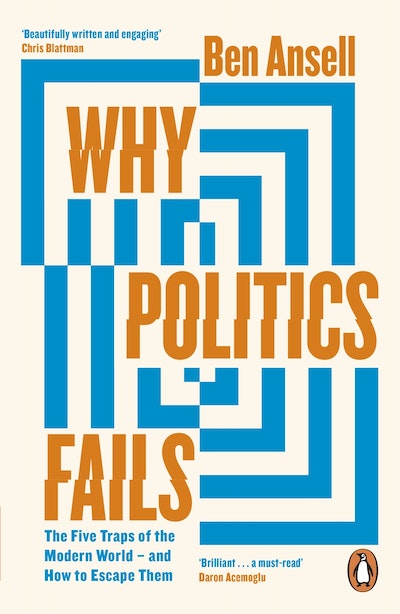- Published: 30 January 2024
- ISBN: 9780241992753
- Imprint: Penguin General UK
- Format: Paperback
- Pages: 352
- RRP: $30.00
Why Politics Fails
The Five Traps of the Modern World & How to Escape Them
- Published: 30 January 2024
- ISBN: 9780241992753
- Imprint: Penguin General UK
- Format: Paperback
- Pages: 352
- RRP: $30.00
I think the book is beautifully written and engaging. Ben has the rare gift of writing like he talks, and even when he gets out of storytelling mode into "here's the facts" it's an engaging read. I also think book-readers are ready for a message that isn't telling us that we are marching steadily towards a better world. Nor does hopeless disaster - endless polarization, climate apocalypse - await humanity. The truth, as usual, is in the middle. Politics is hard. There are trade-offs. If we want to build a better society, let's put aside naive optimism and pessimism and get more sophisticated
Chris Blattman, author of Why We Fight
Salutary reading for the world we live in now
James A. Robinson, co-author of Why Nations Fail
Brilliant ... a must-read
Daron Acemoglu, co-author of Why Nations Fail
A must-read ... In an era of great challenges to the world, the urgency of what Ansell shows us, practical ways to overcoming political obstacles to collective decision making, is all the more timely
Victor Shih, UC San Diego School of Global Policy and Strategy
A meticulous study of how different societies find it so difficult to achieve widely shared goals, like democracy, equality, a decent welfare state, security from crime and sustainable prosperity
Nick Pearce, Financial Times




